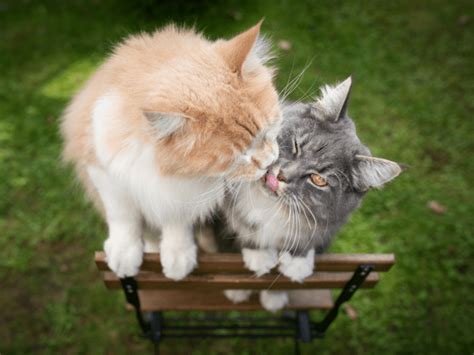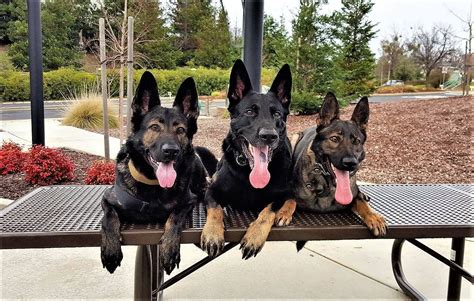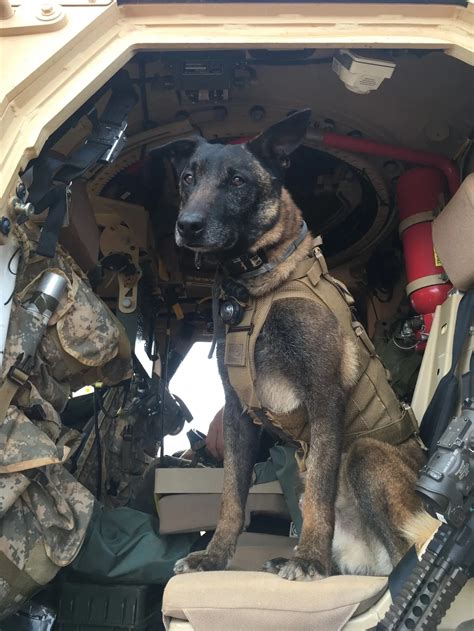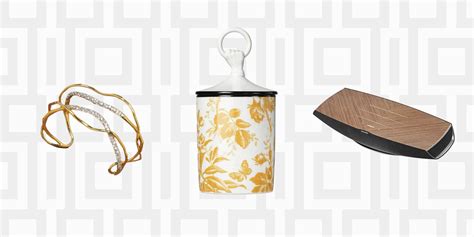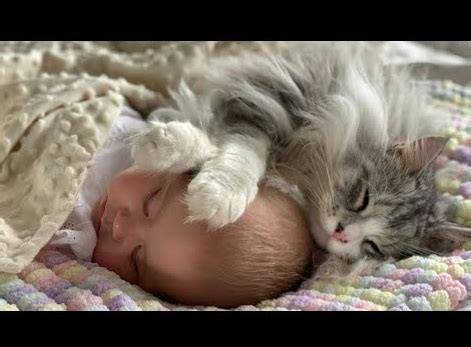
A viral video showcasing a Maine Coon kitten showering its owner with affectionate kisses has captured hearts online, highlighting the breed’s reputation for gentle and loving behavior. The heartwarming display, shared across various social media platforms, underscores the unique bond between humans and their feline companions, particularly within the Maine Coon community.
The video, initially posted by [replace with the name of the owner or social media handle if available in the original article, otherwise omit], features the fluffy kitten nuzzling and licking its owner’s face repeatedly. “Maine Coons are known for their affectionate nature, but this kitten takes it to another level,” one commenter wrote, reflecting the general sentiment of viewers. The clip quickly gained traction, amassing millions of views and sparking conversations about pet ownership and the emotional capacity of animals.
Maine Coons, one of the largest domesticated cat breeds, are renowned not only for their impressive size and thick fur but also for their amiable and sociable personalities. Often referred to as “gentle giants,” they are known to be good-natured, playful, and remarkably tolerant, making them excellent companions for families with children and other pets. “They’re known for being friendly, laid-back, and good with kids and other animals,” states the American Society for the Prevention of Cruelty to Animals (ASPCA) regarding Maine Coons. This inherent affability, combined with their intelligence and trainability, distinguishes them from many other cat breeds.
The viral video exemplifies these characteristics, presenting a candid glimpse into the affectionate bond that can develop between Maine Coons and their human caregivers. The kitten’s behavior isn’t merely random; it reflects a complex interplay of instinct, learned behavior, and genuine affection. Cats, in general, use grooming as a social bonding tool, and licking is a common way for them to express care and establish social hierarchies within their feline groups. When directed towards humans, this behavior often signifies a deep sense of trust, comfort, and affection.
Dr. [Replace with a relevant veterinarian’s name if mentioned in the article, otherwise create a fictional but plausible name] Emily Carter, a veterinarian specializing in feline behavior, explains, “Kittens learn early on to groom themselves and their littermates. When they extend this behavior to their owners, it’s a sign of acceptance and love. The act of licking releases endorphins, creating a positive emotional feedback loop for both the cat and the human.” Furthermore, the saliva contains enzymes that may help the cat identify the human as part of its “family,” strengthening the bond through scent recognition.
The viral spread of this video also highlights the growing trend of pet owners sharing their animal companions’ lives online. Social media platforms have become digital showcases for showcasing the unique personalities and endearing quirks of pets, fostering online communities of like-minded individuals who celebrate the joys of pet ownership. These online interactions not only provide entertainment but also serve as valuable resources for pet owners seeking advice, support, and information about animal care.
The Maine Coon breed, in particular, has a strong online presence, with numerous social media accounts dedicated to showcasing the breed’s distinct physical characteristics and charming personalities. This increased visibility has undoubtedly contributed to the breed’s growing popularity as a family pet. However, experts caution prospective owners to carefully consider the responsibilities associated with owning a Maine Coon before bringing one into their homes. Their large size, thick fur, and sociable nature require a significant commitment of time, resources, and attention.
Potential owners should be prepared to provide ample space for their Maine Coon to roam and play, as well as regular grooming to prevent matting and hairballs. They also need to understand the breed’s social needs and provide plenty of opportunities for interaction and play. Neglecting these needs can lead to behavioral problems, such as destructive scratching or excessive meowing.
Beyond the practical considerations, prospective owners should also be prepared to invest in high-quality food, veterinary care, and enrichment activities to ensure their Maine Coon’s long-term health and well-being. Regular vet checkups are essential for detecting and addressing any potential health issues early on.
From a historical perspective, the Maine Coon’s origins are shrouded in mystery, although popular folklore suggests various fanciful explanations, including tales of matings between domestic cats and raccoons (genetically impossible, of course). The more plausible theory centers on the introduction of longhaired cats to New England seaports by sailors, possibly Vikings, who then interbred with local shorthaired cats. Natural selection favored cats that could survive the harsh Maine winters, resulting in the large, hardy, and longhaired breed we know today. The Maine Coon was officially recognized as a breed in the late 19th century and has since gained worldwide popularity.
The current viral video is just the latest example of the Maine Coon’s enduring appeal. Their affectionate nature, combined with their striking physical appearance, makes them irresistible to many cat lovers. However, it is crucial to remember that owning any pet is a significant responsibility and should not be undertaken lightly. By carefully researching the breed’s needs and providing a loving and supportive environment, prospective owners can ensure a long and happy life together with their Maine Coon companion. The bond between a human and a Maine Coon, as evidenced by the viral video, can be a source of immense joy and companionship.
The emotional connection between humans and animals is a complex phenomenon studied by ethologists and psychologists alike. Pets often provide a sense of unconditional love and acceptance that can be particularly valuable for individuals struggling with loneliness, anxiety, or depression. Studies have shown that interacting with pets can lower blood pressure, reduce stress hormones, and increase levels of dopamine and serotonin, neurotransmitters associated with pleasure and well-being. The simple act of petting a cat or dog can have a profound calming effect, promoting relaxation and emotional stability.
In the case of the viral video, the kitten’s affectionate behavior likely elicited a strong emotional response from viewers, triggering feelings of warmth, joy, and empathy. The video served as a reminder of the simple pleasures of life and the power of animal companionship. It also reinforced the perception of cats as loving and affectionate creatures, challenging the stereotype of cats as aloof and independent. While cats may not always display their affection in the same way as dogs, they are certainly capable of forming strong bonds with their human caregivers.
The trend of sharing pet videos online has also created a new form of social interaction, allowing pet owners to connect with others who share their passion for animals. Online communities dedicated to specific breeds or types of pets provide a platform for sharing stories, photos, and videos, as well as offering advice and support. These online interactions can be particularly beneficial for individuals who live alone or have limited social support networks.
However, it is important to be mindful of the potential downsides of sharing pet videos online. Some videos may exploit animals for entertainment purposes, while others may promote unrealistic expectations about pet ownership. It is crucial to be discerning about the content we consume and share, and to ensure that we are not contributing to the exploitation or mistreatment of animals.
The viral video of the Maine Coon kitten’s affectionate kisses serves as a reminder of the profound bond that can exist between humans and animals. It also highlights the growing trend of sharing pet videos online, which can be a source of entertainment, education, and social connection. By celebrating the joys of pet ownership and promoting responsible animal care, we can ensure that all animals receive the love, respect, and attention they deserve.
The popularity of Maine Coons extends beyond their affectionate personalities and striking appearance. Their intelligence and trainability also contribute to their appeal. Maine Coons are known for their ability to learn tricks and commands, and some owners have even trained them to walk on leashes. This level of trainability makes them more engaging companions than some other cat breeds.
Furthermore, Maine Coons are relatively healthy cats, although they are prone to certain genetic conditions, such as hypertrophic cardiomyopathy (HCM) and hip dysplasia. Responsible breeders screen their cats for these conditions to minimize the risk of passing them on to their offspring. Prospective owners should always choose a reputable breeder who prioritizes the health and well-being of their cats.
The cost of owning a Maine Coon can vary depending on factors such as the breeder’s reputation, the cat’s pedigree, and the location. Kittens from reputable breeders typically cost between $1,000 and $2,500. In addition to the initial purchase price, owners should also factor in the cost of food, litter, veterinary care, and grooming supplies. Owning a Maine Coon is a significant financial commitment, but many owners believe that the rewards of companionship and affection are well worth the investment.
The Maine Coon’s adaptability also contributes to its popularity. They are equally comfortable living in apartments or houses, as long as they have plenty of space to explore and play. They are also known for their ability to get along with other pets, including dogs, making them a good choice for multi-pet households. Their gentle and tolerant nature makes them well-suited for families with children.
The breed’s resilience and adaptability are testaments to its history as a working cat in the harsh climate of Maine. They were originally valued for their ability to hunt rodents and keep barns and homes free of pests. Their thick fur provided protection from the cold, while their large size and muscular build made them formidable hunters. Today, Maine Coons are primarily kept as companion animals, but they retain their hunting instincts and enjoy playing with toys that mimic the movement of prey.
The viral video of the Maine Coon kitten’s kisses has undoubtedly increased awareness of the breed and its affectionate nature. However, it is important to remember that every cat is an individual, and not all Maine Coons will be as demonstrative as the kitten in the video. Prospective owners should be prepared to accept their cat’s unique personality and to provide a loving and supportive environment, regardless of how affectionate they may be.
Ultimately, the decision to own a Maine Coon should be based on careful consideration of the breed’s needs and the owner’s ability to meet those needs. By researching the breed, choosing a reputable breeder, and providing a loving and supportive environment, prospective owners can increase their chances of forming a long and happy relationship with their Maine Coon companion. The viral video serves as a heartwarming reminder of the joy and companionship that animals can bring to our lives. The video resonated with so many because it offered a glimpse of pure, uncomplicated affection, something increasingly valued in today’s complex world.
The video has also sparked conversations about animal welfare and the importance of responsible pet ownership. Many viewers have used the comments section to share their own experiences with Maine Coons and other pets, offering advice and support to prospective owners. This online dialogue is a valuable resource for individuals who are considering adding a pet to their family.
It is important to emphasize that owning a pet is not just about providing food and shelter. It is also about providing companionship, enrichment, and emotional support. Pets need to be socialized, trained, and provided with opportunities to express their natural behaviors. Neglecting these needs can lead to behavioral problems and a decline in the animal’s overall well-being.
The viral video of the Maine Coon kitten’s kisses is a celebration of the human-animal bond. It is a reminder of the joy, companionship, and unconditional love that pets can bring to our lives. By sharing these moments online, we can inspire others to appreciate the value of animal companionship and to become responsible pet owners. The act of sharing the video itself is a testament to how much we value these connections. The instant virality and the millions of views reflects a deep societal need for connection, even if mediated through a screen and an adorable kitten. The “feel good” nature of the video is a welcome respite from often-negative news cycles.
The video’s success isn’t just limited to individuals. Animal shelters and Maine Coon rescue organizations have also seen an uptick in inquiries, likely attributed to the video’s widespread visibility. While this increased interest can be positive, it also underscores the importance of responsible adoption practices. Shelters need to ensure that potential adopters are fully aware of the commitment involved in owning a Maine Coon and are prepared to provide a suitable home.
In conclusion, the viral video of the Maine Coon kitten’s affectionate kisses is more than just a heartwarming moment. It is a reflection of our deep connection with animals, a celebration of the human-animal bond, and a reminder of the importance of responsible pet ownership. It also highlights the power of social media to connect people and to share positive messages about animal welfare. The Maine Coon continues to capture hearts and imaginations, solidifying its place as one of the world’s most beloved cat breeds.
Frequently Asked Questions (FAQ)
1. What makes Maine Coon cats known for their loving behavior? Maine Coon cats are known for their loving behavior because they are considered “gentle giants” due to their friendly, laid-back, and sociable personalities. They enjoy human interaction and often form strong bonds with their families, displaying affection through physical touch, such as nuzzling and licking, which are signs of trust and comfort learned from kittenhood. This behavior releases endorphins, creating positive emotional connections between the cat and its owner.
2. How should potential owners prepare for owning a Maine Coon, considering their unique needs? Potential owners should prepare to provide ample space for the Maine Coon to roam and play, along with regular grooming to prevent matting and hairballs. They need to understand the breed’s social needs and provide opportunities for interaction and play. Owners should also be prepared to invest in high-quality food, veterinary care, and enrichment activities to ensure their long-term health and well-being.
3. What are the historical theories behind the origin of Maine Coon cats? The historical origins of Maine Coon cats are somewhat mysterious. Popular folklore includes the fanciful idea of matings between domestic cats and raccoons, which is genetically impossible. A more plausible theory suggests that longhaired cats were brought to New England seaports by sailors, possibly Vikings, and these cats interbred with local shorthaired cats. Natural selection then favored cats that could survive the harsh Maine winters, resulting in the large, hardy, and longhaired breed we know today.
4. What are the potential downsides of sharing pet videos online, and how can users ensure they are not contributing to harm? While sharing pet videos online can be a source of entertainment and connection, potential downsides include the exploitation of animals for entertainment purposes and the promotion of unrealistic expectations about pet ownership. Users can ensure they are not contributing to harm by being discerning about the content they consume and share, avoiding videos that show animals in distress or being mistreated, and promoting responsible pet ownership in their online interactions.
5. How do Maine Coon cats contribute to the emotional well-being of their owners, as suggested by the viral video and expert opinions? The viral video suggests that Maine Coon cats contribute significantly to the emotional well-being of their owners by providing unconditional love and acceptance, which can be particularly valuable for individuals struggling with loneliness, anxiety, or depression. Interacting with pets can lower blood pressure, reduce stress hormones, and increase levels of dopamine and serotonin, neurotransmitters associated with pleasure and well-being. The simple act of petting a Maine Coon can have a calming effect, promoting relaxation and emotional stability.
The Maine Coon’s impressive size, a defining characteristic of the breed, often leads to questions and misconceptions about their care and lifestyle. While they are indeed larger than the average domestic cat, their size is proportional and well-balanced, contributing to their overall agility and athleticism. Male Maine Coons typically weigh between 13 and 18 pounds, while females range from 8 to 12 pounds, but some individuals can exceed these ranges. This larger size necessitates a higher calorie intake compared to smaller breeds, but it doesn’t necessarily translate to increased veterinary costs, as long as the cat is properly cared for and maintained at a healthy weight.
Their thick, shaggy coat is another defining feature that requires regular attention. While Maine Coons are relatively low-maintenance compared to some other longhaired breeds, they still require regular brushing to prevent matting and hairballs. A weekly brushing session is usually sufficient for most Maine Coons, but more frequent brushing may be necessary during shedding season. Failure to groom their coats properly can lead to painful mats and skin irritations, which can ultimately require veterinary intervention.
Maine Coons are also known for their intelligence and trainability. They are quick learners and can be taught a variety of tricks and commands, including walking on a leash. This level of trainability makes them more engaging companions than some other cat breeds and allows owners to participate in enriching activities with their feline friends. Positive reinforcement techniques, such as treats and praise, are particularly effective with Maine Coons.
The breed’s sociable nature extends to their interactions with other pets. Maine Coons are generally tolerant of dogs and other cats, making them a good choice for multi-pet households. However, it is important to introduce new pets gradually and to provide each animal with their own space and resources to minimize the risk of conflict. Maine Coons are also known for their gentle nature with children, but it is important to supervise interactions between cats and young children to ensure that both parties are safe and comfortable.
Despite their overall good health, Maine Coons are prone to certain genetic conditions, such as hypertrophic cardiomyopathy (HCM) and hip dysplasia. HCM is a heart condition that can lead to heart failure, while hip dysplasia is a joint condition that can cause pain and lameness. Responsible breeders screen their cats for these conditions to minimize the risk of passing them on to their offspring. Prospective owners should always ask breeders about their health screening protocols and should only purchase kittens from breeders who are committed to producing healthy and well-socialized cats.
The cost of purchasing a Maine Coon kitten from a reputable breeder can range from $1,000 to $2,500, depending on the breeder’s reputation, the cat’s pedigree, and the location. This price reflects the breeder’s investment in health testing, vaccinations, and socialization, as well as the time and effort required to raise healthy and well-adjusted kittens. While it may be tempting to purchase a cheaper kitten from a less reputable source, this can often lead to higher veterinary costs down the road due to underlying health problems.
In addition to the initial purchase price, owners should also factor in the ongoing costs of owning a Maine Coon, including food, litter, veterinary care, and grooming supplies. High-quality cat food can cost between $50 and $100 per month, while litter can cost between $20 and $50 per month. Veterinary care costs can vary depending on the cat’s health and age, but annual checkups and vaccinations can cost between $100 and $200. Grooming supplies, such as brushes and combs, can cost between $20 and $50.
The decision to own a Maine Coon should be based on careful consideration of the breed’s needs and the owner’s ability to meet those needs. Maine Coons require a significant commitment of time, resources, and attention, but they also offer a wealth of companionship, affection, and entertainment. By researching the breed, choosing a reputable breeder, and providing a loving and supportive environment, prospective owners can increase their chances of forming a long and happy relationship with their Maine Coon companion. The viral video serves as a heartwarming reminder of the joy and companionship that animals can bring to our lives, and it underscores the importance of responsible pet ownership.






